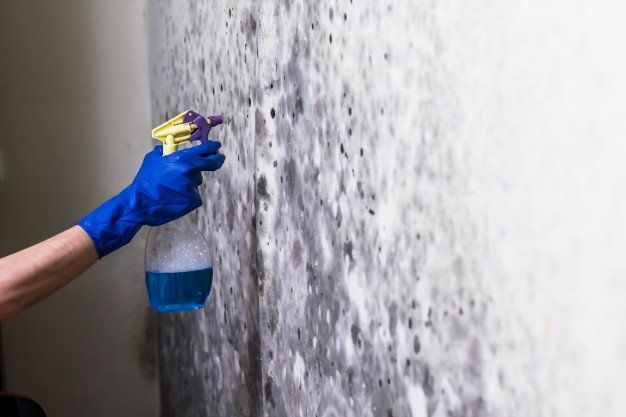Mold Removal Levittown, PA

Mold - What Is It?
Black mold or Stachybotrys chartarum, better known as toxic black mold spores, is a type of fungus that creates its reproductive conidium in tiny slime balls. It can be found in almost all surfaces in nature, although it is more often found in damp or moist building materials such as drywall, siding, and cellulose-rich items from water or wet-molded construction.
There are some types of black mold that grow on animals, including humans, and some produce toxic waste materials when they decay. Common symptoms of exposure to black mold include throat irritation, difficulty breathing, headaches, memory loss, and nausea. This is why it’s important to look for a Mold Removal Specialist Levittown, PA to help you reduce the risks of having Black Mold in your home. Get in touch with us now, so we can help you fix this problem right away.
Where can Black Mold Grow?
In houses, black mold can grow in places where there are high levels of humidity, such as the bathroom, basement, or kitchen. Dampness and moisture cause the spores to germinate and begin to grow. Moisture levels in the house should be checked regularly and excess humidity levels should be eliminated by controlling the use of appliances such as heating and air conditioning systems, installing efficient ventilation systems, and cleaning of living areas.

Contact Us
What are the Most Common Health Issues?
People who have been exposed to spores can develop an immunity to them over time. This may cause symptoms such as nose and throat irritation, difficulty breathing, headaches, and dizziness. The symptoms become more acute if exposure to mold continues or is prolonged. Since the immune system is what prevents our body from exposure to microorganisms that may be harmful, prolonged exposure to mold may result in a build-up of toxins and leave the person susceptible to serious health problems. While it is unclear how exposure to mold may affect the immune system, one study has shown that exposing laboratory mice for six weeks to a single species of black mold resulted in significant damage to the mice's immune system and lowered their immunity to other strains of the disease.
Some types of mold are actually beneficial to have within the home because they are necessary for the health of certain organisms. For instance, the beneficial type of mold (also called mycotoxins) controls the growth and development of certain types of fungi that are harmful to people's health. Molds are typically found inside houses in humidifiers, water heaters, and behind wallpaper. However, there is some evidence that higher levels of humidity levels may cause more serious health problems in some individuals, particularly those with pre-existing conditions like asthma or allergies.
Allergic reactions such as eye irritation and nasal congestion can be a result of exposure to mycotoxins. In fact, these are the most common allergic reactions reported. People who suffer from asthma may find that they have increased sensitivity to airborne mold spores. Asthma attacks may be further triggered when mold spores are inhaled during an attack. These respiratory problems are often associated with an increase in mucus production, which is the body's way of fighting invading organisms or allergens.
If you suspect that you or a family member has a mold allergy, then you need to learn more about the different symptoms that may cause your condition. These symptoms are often mistaken for allergies to environmental irritants, foods, or even dust mites. However, mold exposure can often bring on symptoms such as shortness of breath, coughing, rashes, memory loss, muscle, and joint aches, fatigue, dizziness, chest pains, diarrhea, skin infections, and even death in extreme cases. Allergies to mold are not uncommon, but mold allergies are usually very serious.
Toxic black mold is the most common type of toxic mold and can cause illnesses and diseases. Mold growth can also result in harmful toxins released into the environment. Mold remediation is often necessary after a leak or flood has occurred due to black mold growth. If you suspect that your house has been recently affected by toxic black mold then it is recommended that you consult a certified mold inspector to determine the extent of the mold problem and if the mold removal process needs to be performed.
A reputable mold inspector will use a camera to inspect the home's interior and exterior as well as taking samples of the affected area for laboratory testing. The mold inspectors will then provide a detailed report of the mold contamination, including any testing samples and mold removal cost.
If your health has been compromised by black mold, you may need to consult a health professional. Symptoms of exposure to mold may include throat irritation, sore throat, coughing, wheezing, nausea, lethargy, memory loss, and loss of appetite.
Other symptoms may include headaches, skin irritations, watery eyes, respiratory problems, muscle, and joint aches, digestive problems, and abnormal bleeding. If you have suffered from these symptoms, then it is essential that you seek medical attention immediately. Testing for mold may be required and if there is mold present the proper steps must be taken to remove the mold and prevent future occurrences. Mold Removal is essential before it starts to get worse. Contact us now, so we can help look for signs of mold growth and get rid of it right away.
Visit our blog for expert-driven updates and in-depth analyses that keep you informed about the latest industry trends.

